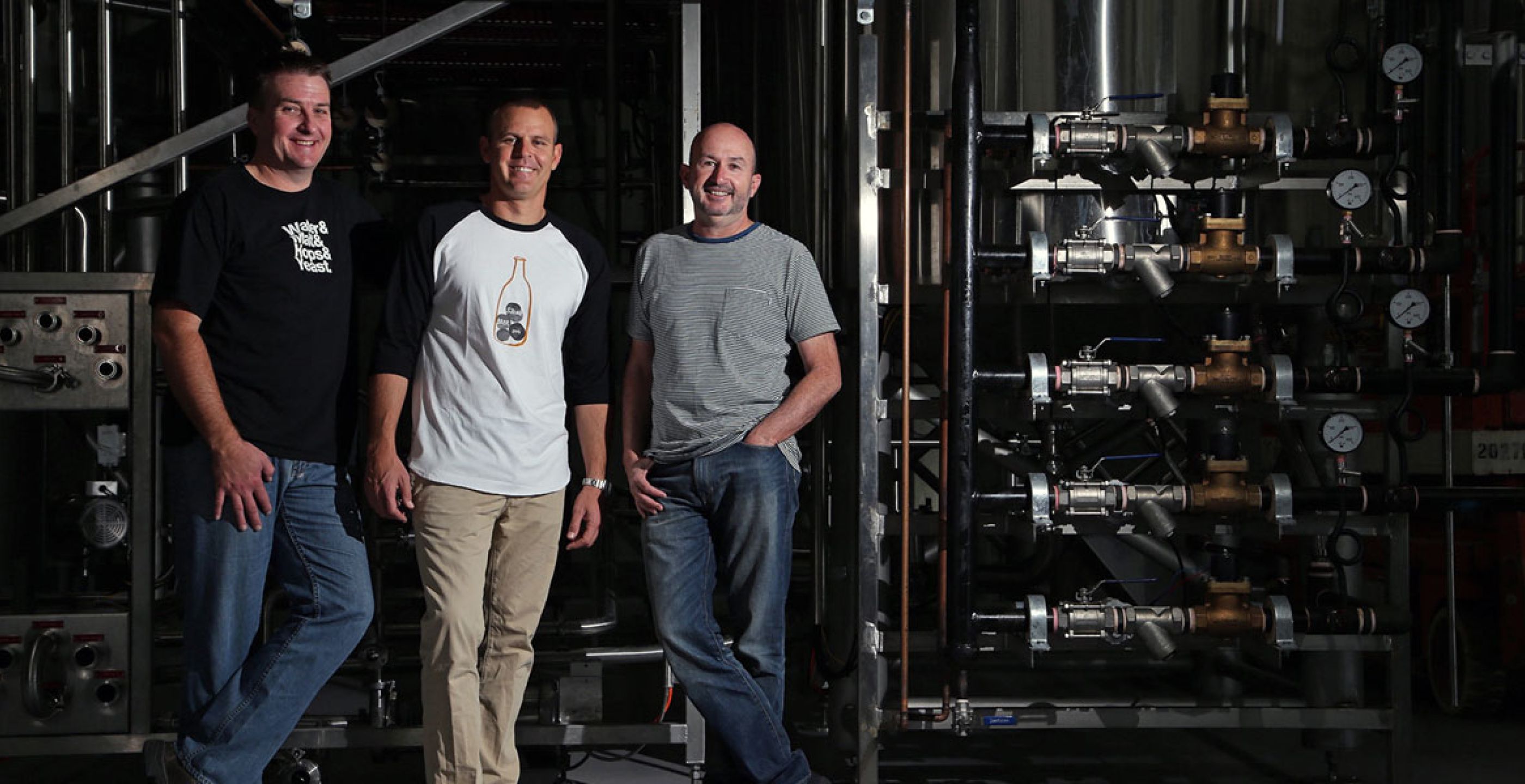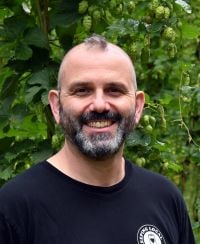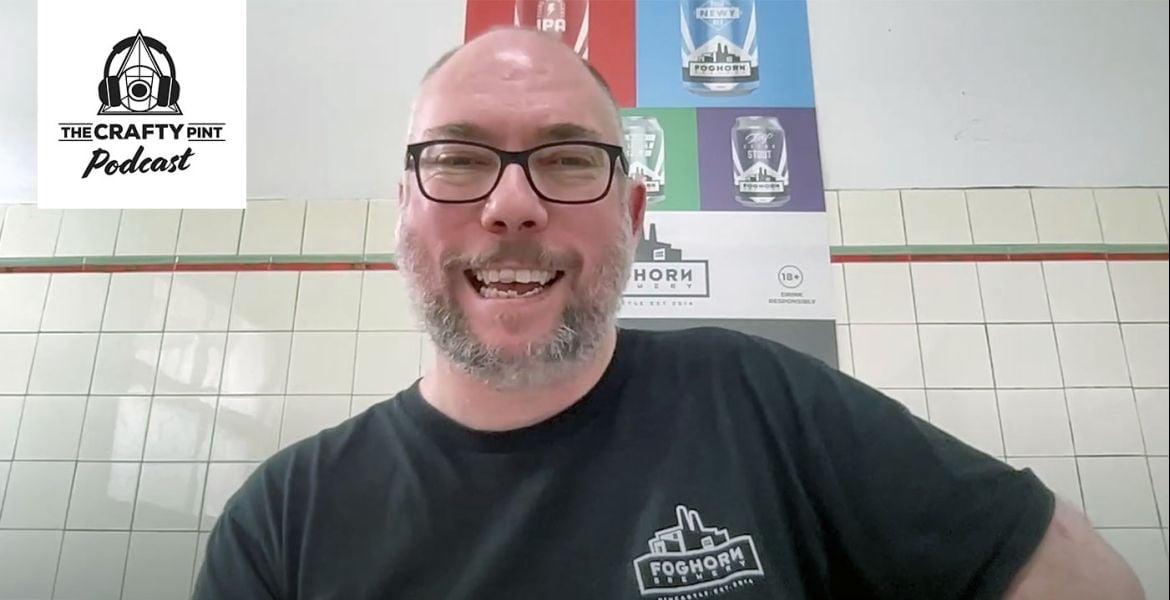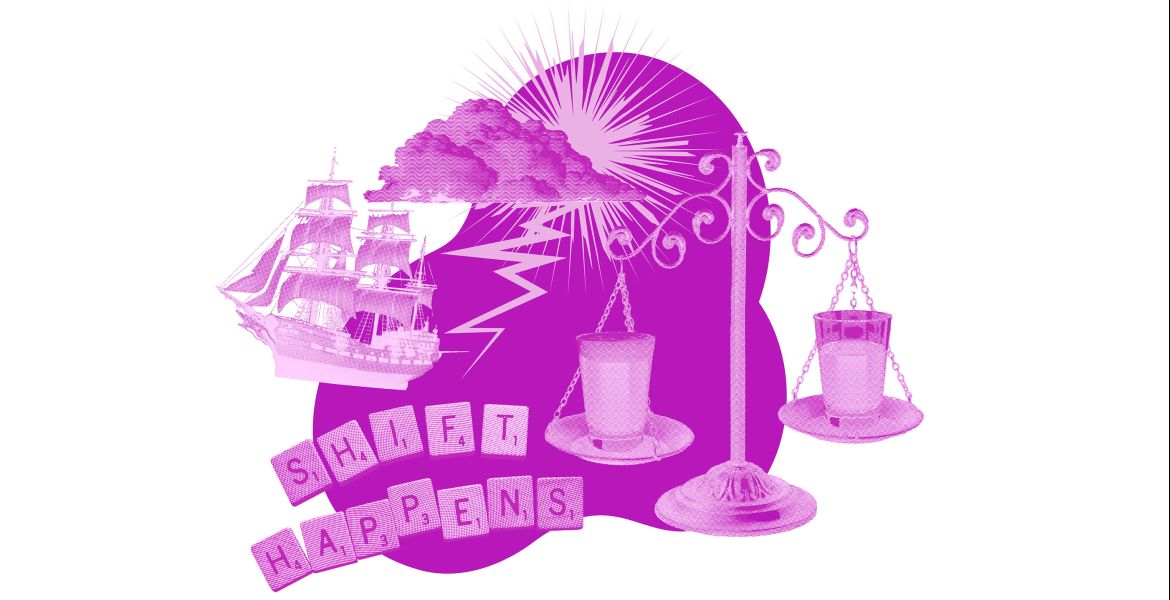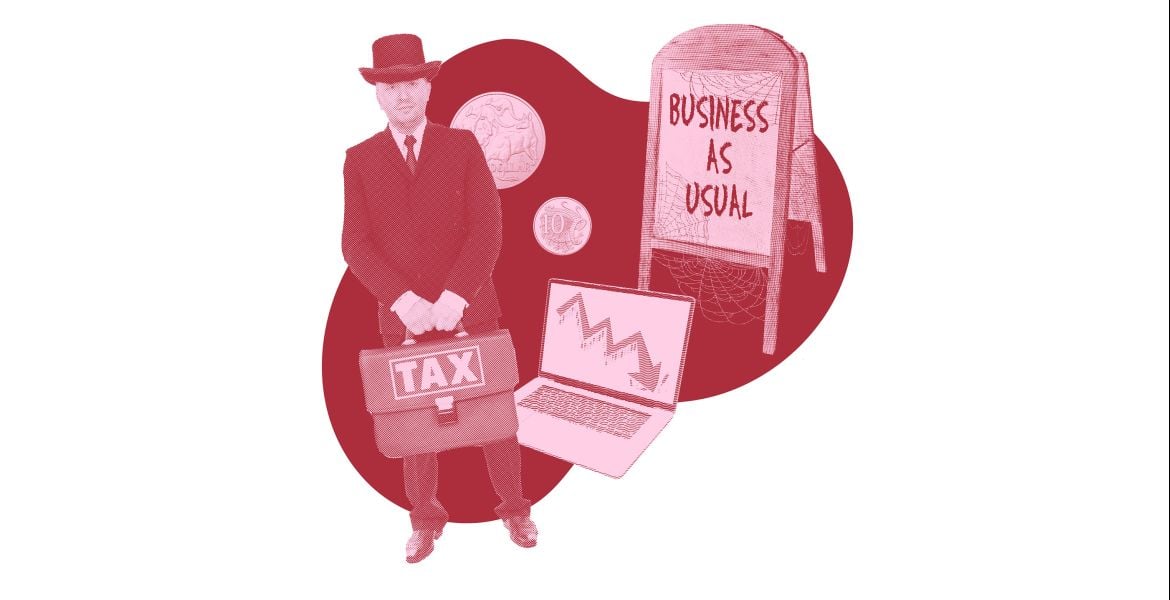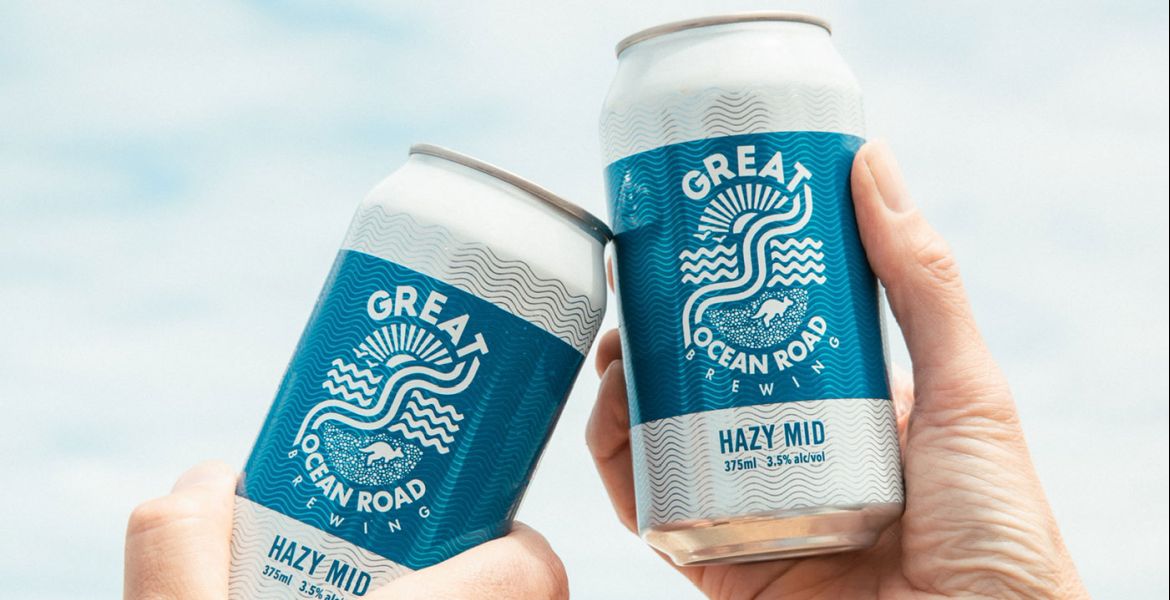In announcing the sale of the Fermentum Group to Lion (subject to approvals), Stone & Wood's founders make much reference to the role the founding families have played in the industry-rocking decision. And, while the business they created after leaving CUB has grown far bigger than Brad Rogers, Ross Jurisich and Jamie Cook (above from left to right), there remain few brewing companies in Australia as closely associated with their founders.
Although they've looked to step back from the running of the business to varying degrees in recent years, their visibility as part of the Stone & Wood brand – not to mention past roles in the wider beer world, such as AIBA Chief Judge (Brad) or Independent Brewers Association chair (Jamie) – has made them key players in the rise of craft beer in Australia. And it's a platform they've not been afraid to use.
Whether pushing to get a craft beer association off the ground, or noisily supporting community causes in their part of the world, they've been involved in much more than building a successful beer business. For all that, however, the news of their sale has led many in the beer community to focus on their past stance on independence.
We referred to examples over the years in our story announcing the launch, and there are other examples – mostly from Jamie, who Ross laughingly calls "the poster boy for independence" in our chat – where they've commented on past sales. Thus, while Lion's acquisition was always going to shock and upset many supporters of the local beer industry, this U-turn has, for some, felt like rubbing salt in the wound.
However, Jamie says he never called out businesses for selling, but for the messaging that sometimes surrounded the sales.
"I don't think I've been outspoken on decisions," he says, "but the way they've tried to communicate, and the way that message has got out there – that it's not necessarily a sale, but a partnership. It was more challenging the way it was being said."
Ross says: "We've always said when different breweries have to sell or divest, every brewer or brewery is allowed to, or can make the call to, sell their business. It's how you go about it and the messages that go with it.
"We're not going to be independent, but our business is more about being a conscious business, and that's what people have tapped into. They're similar values to those Lion have; we spoke about committing to [Fermentum's community support ventures] inGrained Foundation and Big Scrub, and that's just day to day life for Lion."
The decision still represents a departure from the position they've taken frequently over the years, however, and while it's been posited that the impact of COVID played a role, not so, according to Ross.
Although the business was hit hard last March, he says they bounced back strongly at the end of 2020 and once again found themselves unable to meet demand. Thus they "dusted down" plans for the new brewery announced at the start of the year, and it was working out how best to fund the $50 million project that led them, in part, to where they are today, with Lion's commitment to the build a major factor in the deal.
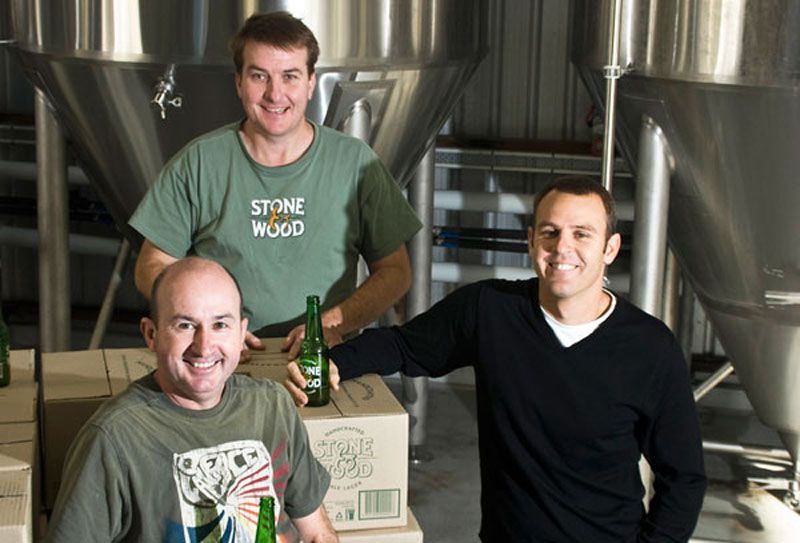
But the intentions of the four founding families – Northern NSW publican Tom Mooney is the fourth founder – also drove the decision-making process. Two of the four had decided they wanted to explore other avenues in their lives, which created what Jamie calls a "stalemate".
"There's nothing wrong with wanting to go and do other things," he says. "There are reasons why people have different motivations. I was happy to be an owner and an investor ongoing, and saw great value in the business the same way Lion do, but when you've got two plus two and there's stalemate it doesn't make for a healthy environment.
"At the end of the day, it comes down to mateship and loyalty. If people want to do other things and maximise their return for all the effort they've put in, and they are the same two people that got into the business that you did, and got it up and running and built it, then you don't want to be standing in the way of them getting their reward."
Given the funds required for any of the founders to buy the others out – and the conditions any new partners might want to impose – they ended up with Lion as their best option, and a decision that benefited many of their employees too, with 80 percent of staff owning five percent of the business between them.
After going through what Ross calls "a rigorous process", he says the Kirin-owned brewing company "stepped up to the plate and didn't baulk at any of [their criteria]", and they found much common ground in their philosophies as corporate citizens too, not least with Lion agreeing to put $5 million into the inGrained Foundation, a figure Jamie says it would otherwise have taken them ten years to achieve.
Asked why they would still need the planned $50 million brewery now they're part of a far larger production ecosystem, Ross says it was an important part of their ongoing desire to support the Northern Rivers region.
"We wanted to ensure the community can benefit from Stone & Wood," he says. "[The new brewery] ensures ongoing employment."
As for the emotions involved in such a momentous move, which was only signed off 48 hours ago, Ross says it's the culmination of "a big few months", with Jamie declaring himself "weary" and describing the process of walking the entire team through the process this morning as "heavy".
"I think we're at peace with it," Ross says. "We thought about it long and hard and, at the end of the day, this was a crossroads and we were either going to stump up $50 million to build a new brewery or pass the baton on to the next group to carry on the journey.
"It would be $50 million spent and locked in for another five years really grinding away to ensure that project was completed on time and on budget and seeing value [from it]. You weigh that up and go, 'Is it the time to roll the dice and go again, or is this legacy better off in other hands?'."
The acquisition comes hot on the heels of Lion's last major Australian brewing company purchase, Little Creatures, releasing a core range Pacific Ale. The long and twisted tale of that beer, and Stone & Wood's attempts to protect the name, has been told many times and there are now plenty of imitators on the market, but the proximity of the beer's release and this announcement did raise eyebrows.
It's not a concern for the Stone & Wood team, however.
"There's a tonne of Pacific ales out there," Ross says. "Just because Lion will end up having a couple in their portfolio [three if you include Tiny Mountain's] wouldn't crowd the Pacific ale market – there's plenty of opportunity out there.
"How many lagers or pale ales are there?"

Within the Fermentum Group, Jamie believes the move will benefit Fixation and the man driving it, Tom Delmont.
"He's on a roll," Jamie says. "The challenge he's had has been being in a stable with other brands that have taken a lot of the limelight in terms of driving the business. This gives him a broader opportunity to get beers into places.
"[Two Birds founders] Jayne and Dani have been through it themselves [their sale to Stone & Wood], so they understand what it's like to go through this stuff. Lion are very focused on diversity and have a strong program around that."
As for the impact Fermentum's departure from the ranks of indie beer might have on the hundreds of other small brewing companies that remain independent, Ross is bullish.
"The Australian beer industry remains very healthy. There's more and more breweries entering the market every week. There's a tremendous amount of diversity and that's growing," he says. "It's great to have played our part over the past 13 years."
Jamie is eager to see the IBA continue to play a crucial role too, saying he's "still a big believer" in the body he and Brad helped get off the ground.
"It was set up to create a single voice and a resource base for all the little guys who couldn't do that on their own," he says. "We put a lot of effort into that individually, just trying to give back to the industry. There's still a lot of businesses looking for knowledge and a voice."
So, do they have any words of advice for those looking to build successful indie brewing companies?
"Just be patient," Ross says. "It takes time to grow a consumer brand. You may or may not be able to do it on your own.
"Surround yourself with great people. Tap into the industry bodies that are available to us. And enjoy what you do."
You can read our first story on the sale here and find reaction from around the beer industry here.





